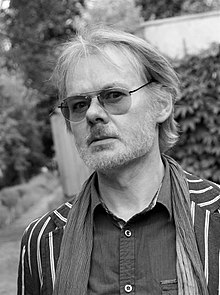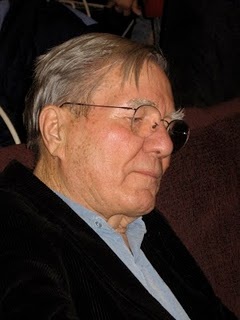The Eastern European poets are often astonishing. Here’s one by a poet who recently died that I found odd and intriguing and kind of wonderful.
Archaeopteryx
you’re home. eating lentils. talking to your
loved one. you’re abroad. eating lentils. talking to
your loved one. you’re not yourself. you’ve been stolen.
you’re talking to your lentils. you’re not a knife, not cotton.
talking to your loved one. you forgot how to talk
and forgot how to hang in the closet. you forgot
the letter p in the receit. you’re talking to cotton.
it doesn’t answer. its life was not for you.
a lot. too much. although there is never too much.
you’re anywhere. eating lentils. talking to.
she doesn’t answer. she went everywhere you went.
she flew. when you fly—you can’t cry. you’re
talking to her. she doesn’t answer. but there were
two rooms. you didn’t know where. you went
anywhere. no one was drawing your loved one there.
just a manuscript in the bottom drawer of the desk.
and its feathers are petrified. along with two dozen
of its vertebrae. you told your loved one about this.
you ate lentils and it didn’t even rain. one hundred fifty
million years—just the blink of an eye. in your
manuscript. in the solnhofen schist.
Kęstutis Navakas
Translated from the Lithuanian by Rimas Uzgiris (from Poetry Daily)
I wonder what “you forgot /the letter p in the receit” was in Lithuanian?

 Seeing as we all seem to be in a semi-permanent mode of waiting: waiting for life to return to normal, for the pandemic to end, for the election, for the air to be breathable again, this seemed a good time for Galway Kinnell’s poem, “Wait.”
Seeing as we all seem to be in a semi-permanent mode of waiting: waiting for life to return to normal, for the pandemic to end, for the election, for the air to be breathable again, this seemed a good time for Galway Kinnell’s poem, “Wait.”